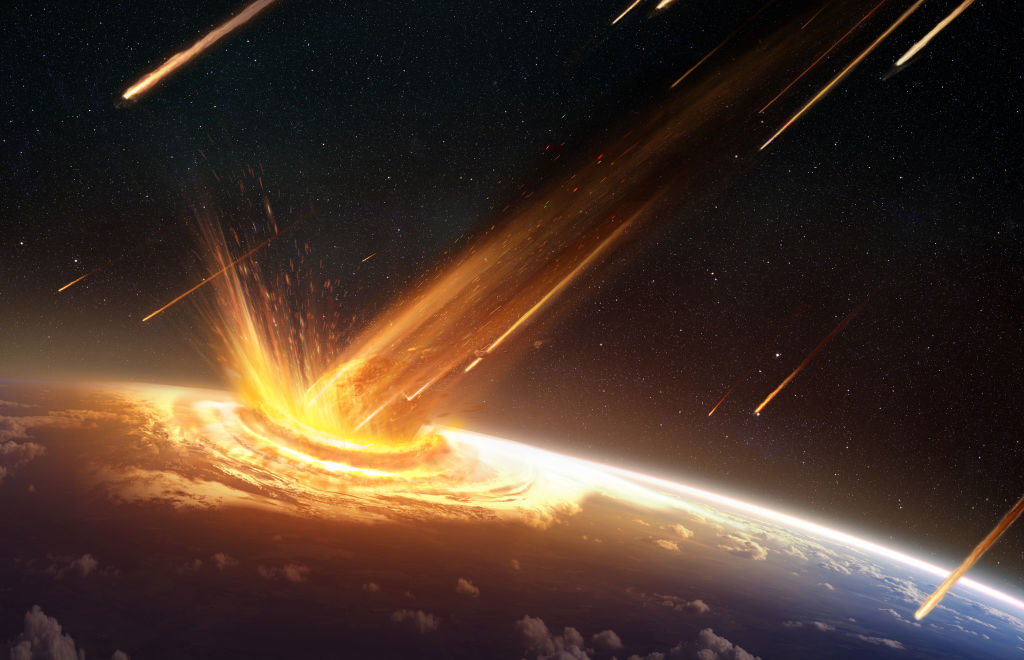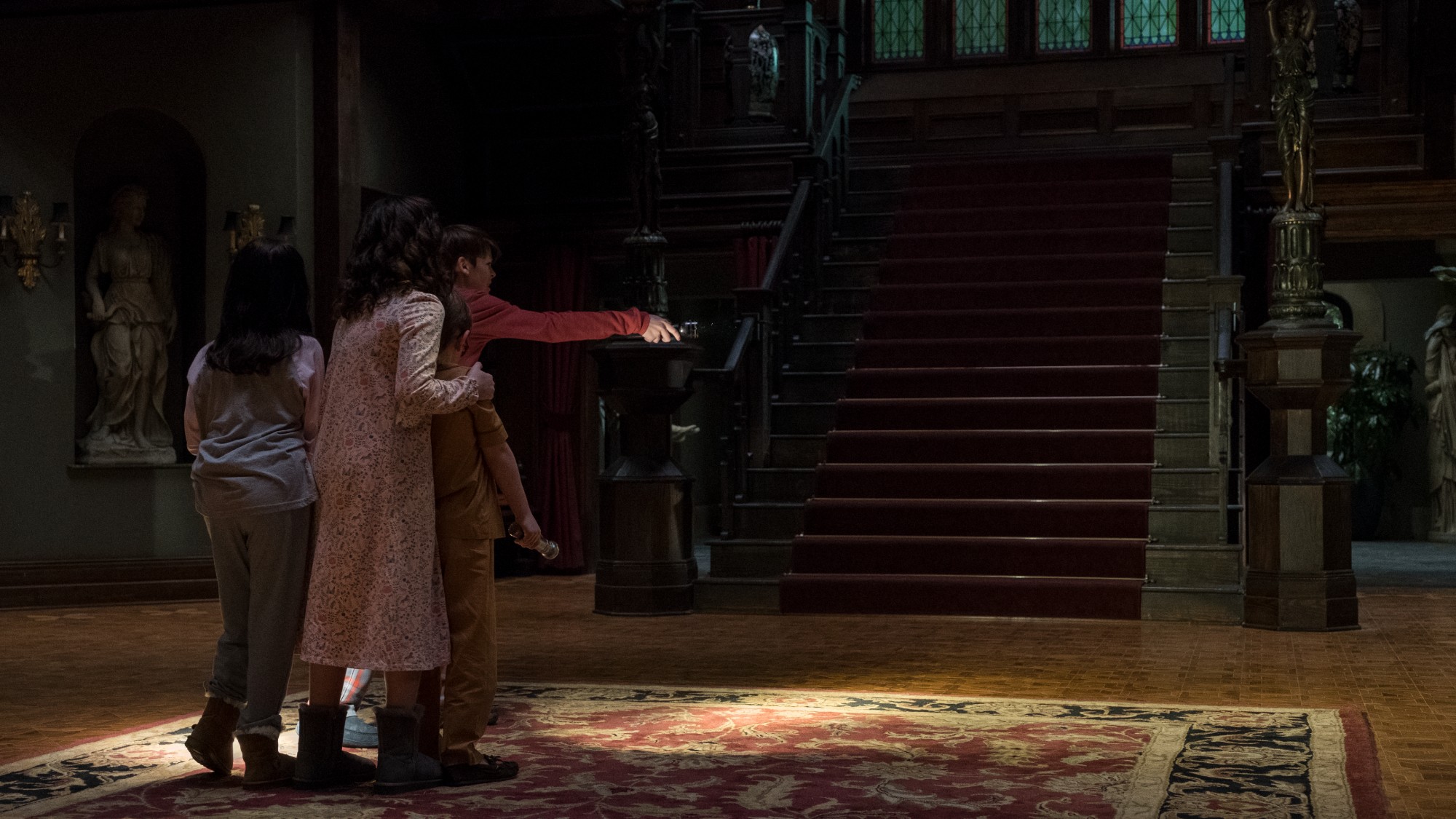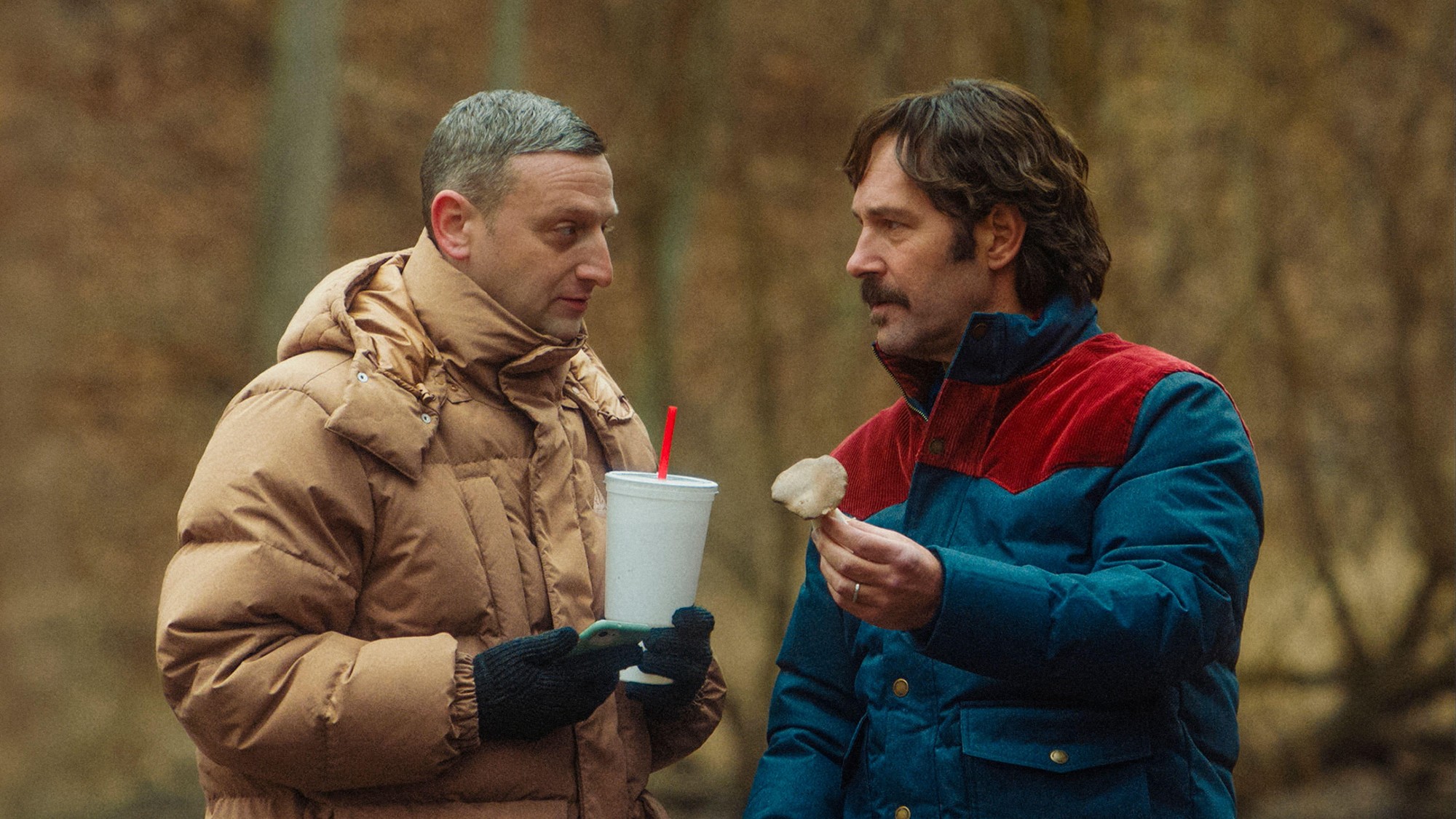Is Don’t Look Up realistic?
How experts are dealing with the real-life threat posed by asteroids heading to Earth

A free daily email with the biggest news stories of the day – and the best features from TheWeek.com
You are now subscribed
Your newsletter sign-up was successful
Space scientist Monica Grady from The Open University on how worried we should be about a potentially lethal asteroid like that in the Netflix film
Don’t look now – but we are currently experiencing a rash of stories about a forthcoming global catastrophe. But in a change from reports of pandemics and climate change, this global catastrophe is produced by the impact of a giant asteroid. Or comet. Or both. This may feel extra ominous given the events in the recent Netflix film Don’t Look Up, in which the Earth is threatened by a “planet killer” asteroid.
But how worried should we really be – and what would happen if such a body actually hit us?
The Week
Escape your echo chamber. Get the facts behind the news, plus analysis from multiple perspectives.

Sign up for The Week's Free Newsletters
From our morning news briefing to a weekly Good News Newsletter, get the best of The Week delivered directly to your inbox.
From our morning news briefing to a weekly Good News Newsletter, get the best of The Week delivered directly to your inbox.
It has been my experience that killer asteroids tend to strike in the summer months, when news is thin on the ground. Maybe we are so tired of grim news about the spread of the Omicron Covid variant and associated problems that a killer asteroid (or comet) makes a refreshing change.
Some UK newspapers have turned to Nostradamus, the 16th century astrologer. A couple ran stories at the end of 2021 about 2022 being the year in which Nostradamus predicted that the world would end in a giant impact with a body from space. This hook has resulted in tabulations of objects that may (or, more likely, will not) come close to the Earth in 2022.
My favourite list was published by The Sun newspaper, which described five asteroids heading towards the Earth in January alone.
The scary headline and its accompanying image of an Earth in apparent danger is somewhat undermined by the sentences following the image, in which the newspaper states that “all of the forecasted asteroids this year will pass by Earth by a significant distance and is very unlikely they will hit our planet”. We have already missed (or been missed by) the first two asteroids in this list (2021 YQ and 2021 YX), which hurtled by Earth on 5 January at distances of 1.3 million and 2.4 million miles, respectively.
A free daily email with the biggest news stories of the day – and the best features from TheWeek.com
No, I didn’t notice them either – and I study asteroids. There are a further three asteroids predicted to pass between one million and five million miles from the Earth in the next few days, ranging in size from that of a car to that of the Statue of Liberty. The one that will get the closest will still be four times as far away as the Moon, so not exactly close calls.
Is Don’t Look Up true to life?
Don’t Look Up is an allegory, using the globally catastrophic impact of a “planet killer” for the globally catastrophic impact of climate change. It is a tale of corruption, venality and political and corporate self-interest placed ahead of the health and welfare of humanity. It is also very funny.
Without giving away too many spoilers, the plot focuses around two astronomers (a graduate student and her professor) who discover a comet that will collide with Earth in six months’ time. They try to tell the President of the United States (played gloriously by Meryl Streep), but she is more concerned with the mid-term elections.
The film pokes fun at right-wing US politics, the influence of donations to political parties on policy (and politicians), the increasing capacity for modern technology to collect information about health, habits and lifestyle, and the use of that information by technology giants.
It does not poke fun at the science though: the discovery of the comet is (sort of) realistic. Which is as it should be, since Amy Mainzer, principal investigator of Nasa’s Neowise asteroid tracking programme, was scientific advisor to the production. In the film, the astronomers report their findings to the Planetary Defense Coordination Office, which, as the movie shows, is a real organisation operated by Nasa.

So is the film realistic? The Earth has been hit by large asteroids in the past – which is why there are no enormous dinosaurs roaming the planet today. And it is bombarded every day by tonnes of dust and meteorites. It is certain that a “planet killer” is written in the future (though occurring at most once in 50 million years) – and this is taken much more seriously by international governments than is shown in the film.
There is a well-tested protocol for reporting new asteroids and comets, which is how we know about the ones passing close(ish) to Earth this month.
There are also plans to mitigate the potential consequences from an asteroid on collision course with the Earth. These typically rely on deflecting the asteroid’s course, as trying to shoot it down last minute isn’t feasible – it would take too much energy. The launch in November of Nasa’s Dart mission, a technology-testing mission, will further help shed light on how to best deflect asteroids threatening Earth.
But where Don’t Look Up touches a nerve is the lack of preparedness for the emergency if (when) it finally happens and the mitigation plans have failed. Here I come back to the allegory for climate change. There is no Plan B. In the film, the slogan “Don’t Look Up” is a denial that an approaching comet will destroy the planet – it is portrayed as fake news.
I thought it was a great film. It is entertainment. But it is not fake news. We are a global community and we must act together.
Monica Grady, Professor of Planetary and Space Sciences, The Open University.
This article is republished from The Conversation under a Creative Commons licence. Read the original article.
-
 How the FCC’s ‘equal time’ rule works
How the FCC’s ‘equal time’ rule worksIn the Spotlight The law is at the heart of the Colbert-CBS conflict
-
 What is the endgame in the DHS shutdown?
What is the endgame in the DHS shutdown?Today’s Big Question Democrats want to rein in ICE’s immigration crackdown
-
 ‘Poor time management isn’t just an inconvenience’
‘Poor time management isn’t just an inconvenience’Instant Opinion Opinion, comment and editorials of the day
-
 February TV brings the debut of an adult animated series, the latest batch of ‘Bridgerton’ and the return of an aughts sitcom
February TV brings the debut of an adult animated series, the latest batch of ‘Bridgerton’ and the return of an aughts sitcomthe week recommends An animated lawyers show, a post-apocalyptic family reunion and a revival of a hospital comedy classic
-
 The 8 best hospital dramas of all time
The 8 best hospital dramas of all timethe week recommends From wartime period pieces to of-the-moment procedurals, audiences never tire of watching doctors and nurses do their lifesaving thing
-
 The 8 best horror series of all time
The 8 best horror series of all timethe week recommends Lost voyages, haunted houses and the best scares in television history
-
 The 8 best comedy movies of 2025
The 8 best comedy movies of 2025the week recommends Filmmakers find laughs in both familiar set-ups and hopeless places
-
 The best drama TV series of 2025
The best drama TV series of 2025the week recommends From the horrors of death to the hive-mind apocalypse, TV is far from out of great ideas
-
 The 8 best drama movies of 2025
The 8 best drama movies of 2025the week recommends Nuclear war, dictatorship and the summer of 2020 highlight the most important and memorable films of 2025
-
 The 8 best comedy series of 2025
The 8 best comedy series of 2025the week recommends From quarterlife crises to Hollywood satires, these were the funniest shows of 2025
-
 A postapocalyptic trip to Sin City, a peek inside Taylor Swift’s ‘Eras’ tour, and an explicit hockey romance in December TV
A postapocalyptic trip to Sin City, a peek inside Taylor Swift’s ‘Eras’ tour, and an explicit hockey romance in December TVthe week recommends This month’s new television releases include ‘Fallout,’ ‘Taylor Swift: The End Of An Era’ and ‘Heated Rivalry’